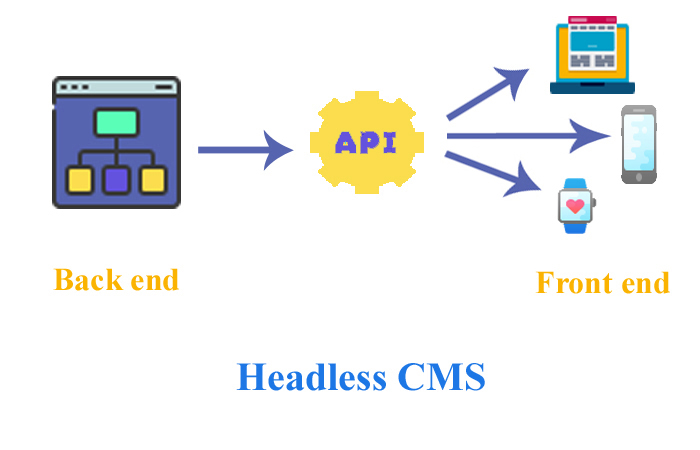Global E-Commerce Market
The global e-commerce market size was valued at USD 9.09 trillion in 2019 and is expected to grow at a compound annual growth rate (CAGR) of 14.7% from 2020 to 2027. Increasing penetration of the internet and the development of 4G and 5G connectivity is bolstering the smartphone-using population across the world. Digital content, travel and leisure, financial services, and e-tailing among others constitute a variety of e-commerce options available to the internet accessing customer base that is gaining momentum with increased internet usage. Hence, technological awareness among customers is expected to have a positive impact on market growth.
The covid-19 pandemic has given a boost to the growth of e-commerce sector further leading to more and more Small and Mid-level businesses to adopt online commerce globally.
Popular Technologies and Frameworks for building quickly building e-commerce applications/store fronts.
The struggle is real when deciding which e-commerce platform will work best for you, especially if you want it to be budget-friendly, have great support, and have the potential to scale in the future. In our experience, the bulk of e-commerce sites on the internet are powered by Shopify, Magento, and WooCommerce.
WooCommerce
This is the world’s most popular and widely used e-commerce platform for small to mid-level businesses. It is a WordPress based open-source alternative and it the best platform in terms of versatility. It provides a rich plugin architecture and drag and drop UI builder with customization options. Due to the rich eco-systems of the plugins available in the marketplace, one can customize the platform according to their needs with less effort. This also comes with in-built SEO capabilities combined with the power of CMS.


Shopify
This is an online e-commerce store building platform which provides, off the shelf capabilities for building seller and buyer apps, payment gateway integration of choice , branding and personalization. This aids in the faster delivery of launching an online e-commerce store with minimal effort. There are limitations in terms of branding and customization. This is a SaaS platform so need to have an active subscription to keep it running and no other alternate hosting options are provided. Feature set is very much focussed on e-commerce only. Any extension of features require buying any third-party plugin which adds up to the monthly cost.
Headless CMS
This is the next gen custom content management systems which helps in building highly scalable and customizable e-commerce application with quick time to market applications. The backend can be built using the CMS with off the shelf APIs which can be customized per needs. For front-end, we can use any framework of choice such as React, Angular, Vue JS etc., and for mobile we can use languages such as Flutter, Java, Kotlin etc.
This custom development can also help us with building the Admin use cases for Order Fulfilment such as Order Status tracking, supply chain transactions and delivery tracking.
This can be deployed on-premise and cloud servers and can be hosting on any Linux/Windows server environments. This can be used to build both the Seller and Buyer apps which covers the entire e-commerce operations. It provides dashboards for efficient tracking, production, logistics and delivery of orders.
We specialize in building e-commerce applications on the widely used WooCommerce framework and building custom e-commerce applications from scratch using Headless CMS framework such as Strapi with NodeJS/Angular stack.

Our Services

E-Commerce
We are specialized in design and delivery of building e-commerce applications using WooCommerce and Headless CMS . We have built e-commerce stores for selling toys, boutiques, organic products and used cars online
Integrations
We also support integration of online stores with external ERP systems for Stock, SKU, Order Management and User Analytics.
BI & Data Analytics
There are many benefits that businesses can enjoy by leveraging business intelligence (BI) and data analytics. By understanding and tracking key performance indicators (KPIs), businesses can make more informed and proactive decisions to improve their overall performance. Additionally, data analytics can help businesses discover new opportunities and optimize their existing processes. Ultimately, business intelligence and data analytics can help organizations of all sizes to better compete in today’s marketplace.
Why is it important?
Intelligent order management is the key for the success of any e-commerce business. To measure the efficiency in delivering orders and improve customer satisfaction, data analytics has become an integral part of any e-commerce solution. For making data driven decisions and improve operational efficiency thereby improving the delivery experience, business intelligence dashboards play an important role in highlighting the areas of improvement to the stakeholders.
What do we offer?
We offer data engineering services and development support for building dashboards using Power BI, Google Data Studio or Open-Source BI tools such as Metabase, Apache Superset etc., We are specialized in building custom BI dashboard using Angular/PHP, CubeJS, D3/NGX/Plotly/Google/HighCharts charts etc.,

